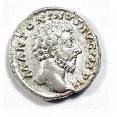
(This is taken from St. George William Joseph Stock's A Guide to Stoicism.)
Philosophy was defined by the Stoics as ‘the knowledge of things divine and human’. It was divided into three departments; logic, ethic, and physic. This division indeed was in existence before their time, but they have got the credit of it as of some other things which they did not originate. Neither was it confined to them, but was part of the common stock of thought. Even the Epicureans, who are said to have rejected logic can hardly be counted as dissentients from this threefold division. For what they did was to substitute for the Stoic logic a logic of their own, dealing with the notions derived from sense, much in the same way as Bacon substituted his Novum Organum for the Organon of Aristotle. Cleanthes we are told recognised six parts of philosophy, namely, dialectic, rhetoric, ethic, politic, physic, and theology, but these are obviously the result of subdivision of the primary ones. Of the three departments we may say that logic deals with the form and expression of knowledge, physic with the matter of knowledge, and ethic with the use of knowledge. The division may also be justified in this way. Philosophy must study either nature (including the divine nature) or man; and, if it studies man, it must regard him either from the side of the intellect or of the feelings, that is either as a thinking (logic) or as an acting (ethic) being.
As to the order in which the different departments should he studied, we have had preserved to us the actual words of Chrysippus in his fourth book on Lives. ‘First of all then it seems to me that, as has been rightly said by the ancients, there are three heads under which the speculations of the philosopher fall, logic, ethic, physic; next, that of these the logical should come first, the ethical second, and the physical third, and that of the physical the treatment of the gods should come last, whence also they have given the name of “completions” to the instruction delivered on this subject’. That this order however might yield to convenience is plain from another book on the use of reason, where he says that ‘the student who takes up logic first need not entirely abstain from the other branches of philosophy, but should study them also as occasion offers.’
Plutarch twits Chrysippus with inconsistency, because in the face of this declaration as to the order of treatment, he nevertheless says that morals rest upon physics. But to this charge it may fairly be replied that the order of exposition need not coincide with the order of existence. Metaphysically speaking, morals may depend upon physics and the right conduct of man be deducible from the structure of the universe but for all that, it may be advisable to study physics later. Physics meant the nature of God and the Universe. Our nature may be deducible from that but it is better known to ourselves to start with, so that it may be well to begin from the end of the stick that we have in our hands. But that Chrysippus did teach the logical dependence of morals on physics is plain from his own words. In his third book on the Gods he says ‘for it is not possible to find any other origin of justice or mode of its generation save that from Zeus and the nature of the universe for anything we have to say about good and evil must needs derive its origin therefrom’, and again in his Physical Theses, ‘for there is no other or more appropriate way of approaching the subject of good and evil on the virtues or happiness than from the nature of all things and the administration of the universe—for it is to these we must attach the treatment of good and evil inasmuch as there is no better origin to which we can refer them and inasmuch as physical speculation is taken in solely with a view to the distinction between good and evil.’
The last words are worth noting as showing that even with Chrysippus who has been called the intellectual founder of Stoicism the whole stress of the philosophy of the Porch fell upon its moral teaching. It was a favourite metaphor with the school to compare philosophy to a fertile vineyard or orchard. Ethic was the good fruit, physic the tall plants, and logic the strong wall. The wall existed only to guard the trees, and the trees only to produce the fruit. Or again philosophy was likened to an egg of which ethic was the yolk containing the chick, physic the white which formed its nourishment while logic was the hard outside shell. Posidonius, a later member of the school, objected to the metaphor from the vineyard on the ground that the fruit and the trees and the wall were all separable whereas the parts of philosophy were inseparable. He preferred therefore to liken it to a living organism, logic being the bones and sinews, physic the flesh and blood, but ethic the soul.
Copyright © World Spirituality · All Rights Reserved